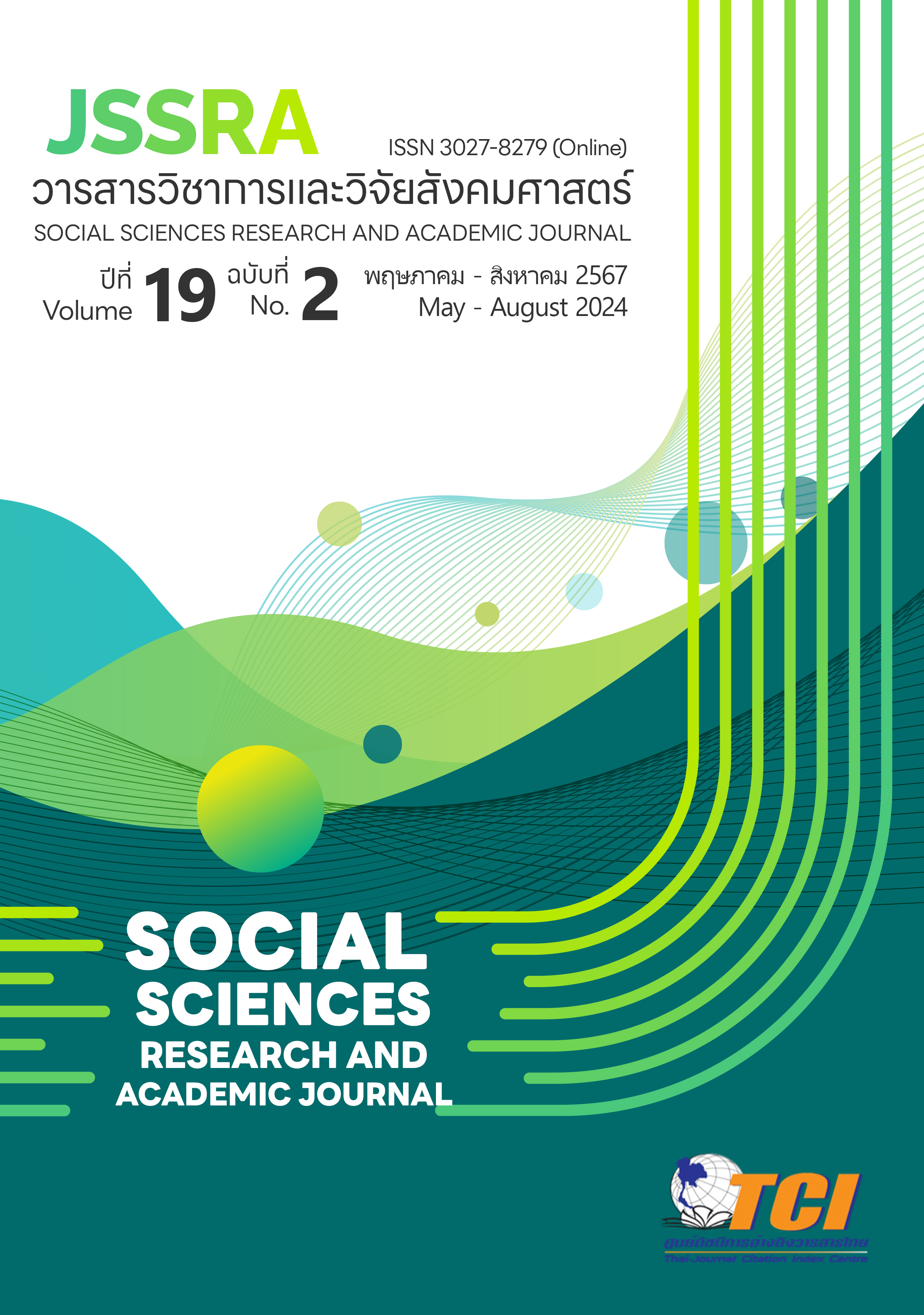The Effect of Implementing the Stem Education Integrated Argumentation (6E+A) to Enhance the Stem Habits of Mind
Main Article Content
Abstract
This objective of this research aimed to study the effects of implementing STEM education integrated argumentation (6E+A) to enhance the STEM habits of mind among twelfth-grade secondary school students. The sample group consisted of 113 students from the twelfth grade in the first semester of the academic year 2023
at Mueangtalungpittayasan School. The research tools were including: 1) Three STEM Education integrated argumentation (6E+A) lesson plans, 2) the STEM habits of mind evaluation form and 3) Student interview questionnaire. Statistical used for data analysis included mean, standard deviation, variance analysis, and content analysis.
The study found that STEM habits of mind in student were enhanced when implementing STEM education integrated argumentation (6E+A). Furthermore, the analysis of learning activity interpretations and student interviews with a sample group of 5 students using content analysis revealed the presence of all 6 characteristics of STEM habits of mind. These characteristics were ranked in 5 descending order of frequency as follows: Curiosity, Careful Making decision and Recognizing cause and effect were equal, Integrative thinking, Innovative ability and Communicative ability.
Article Details
References
Callick, M., & Coll, R.K. (2012, August). Investigating Socioscientific Issue via Scientific Habits of Mind: Development and Validation of the Scientific Habits of Mind Survey. International Journal of Science Education, 24(12), 1909-1930.
Chanprasert, S. (2013). Science Learning Management and the 21st Century Skill. IPST Magazine, 42(185), 10-13. (In Thai).
Chuaytanee, N. (2019). The Development of STEM Education Integrated Argumentation Learning Model (6E+A) to Enhance STEM Problem Solving Skills of Undergraduate Students. Doctoral dissertation, Ed.D., Srinakharinwirot University, Bangkok. (In Thai).
Chulavatnatol, M. (2013). STEM Education Thailand and STEM Ambassdors. IPST Magazine. 42(185), 14-18. (In Thai).
Costa, A. L. (2008). Describing the Habits of Mind. In Costa, A. L. and Kallick, B. (Eds.), Learning and Leading with Habits of Mind, (pp. 15-38). USA: ASCD.
Gonzalez, H. B. and Kuenzi, J. J. (2012). Science, Technology, Engineering, and Mathematics (STEM) Education: A Primer. Retrieved June 10, 2014, from, www.fas.org/sgp/crs/misc/R42642.pdf
Karunram, A. (2018). Development of the STEM Learning Model to Enhance the STEM Habits of Mind among Seventh Grade Students. Doctoral dissertation, Ed.D., Srinakharinwirot University, Bangkok. (In Thai).
Karunram, A., Khumwong, P., Boonprakob, M. and Prakobpol, T. (2018). STEM Habits of Mind; It’s Meaning and Component. Journal of Graduate Studies in Northern Rajabhat Universities, 8(15), 63-76. (In Thai).
Khemkong, S. (2017). The Development of Grade 11th Student'scientific Reasoning Ability by using Inquiry-Based Learning. Master thesis, M.Ed., Kasetsart University, Bangkok. (In Thai).
Labov, J. B., Reid, A. H. and Yamamoto, K. R. (2010, March). Integrated Biology and Undergraduate Science Education: a new biology education for the 21st Century?. CBE Life Science Education, 9(1), 10-16.
Ministry of Education. (2016). STEM Education. Retrieved August 31, 2016, from https://www.moe.go.th
Royal Academy of Engineering. (2014). Thinking Like an Engineering Implication for The Education System. Retrieved October 20, 2015, from www.raeng.org.uk/think.likeengineer
Suksawang, S. (2018). Different Between Creativity and Innovation. Retrieved April 20, 2018, from https://www.sasimasuk.com/
The Institute for the Promotion of Teaching Science and Technology (IPST). (2012). Measurement and Evaluation in Science. Bangkok: SE-Education.
Tishman, S. (2000). Why Teach Habits of Mind?. In Costa, A. L., & Kallick, B. (Eds.), Discovering & Exploring Habits of Mind, (pp. 41-51). USA: ASCD.
Wantisuksombut, N. (2004). The Development of Computer Instructional Model Based on Constructivist Approach using Problem Solving Learning Management for the Second Key Stage Students According to Basic Education Curriculum B.E. 2544. Master thesis, M.Ed., Chulalongkorn University, Bangkok. (In Thai).


